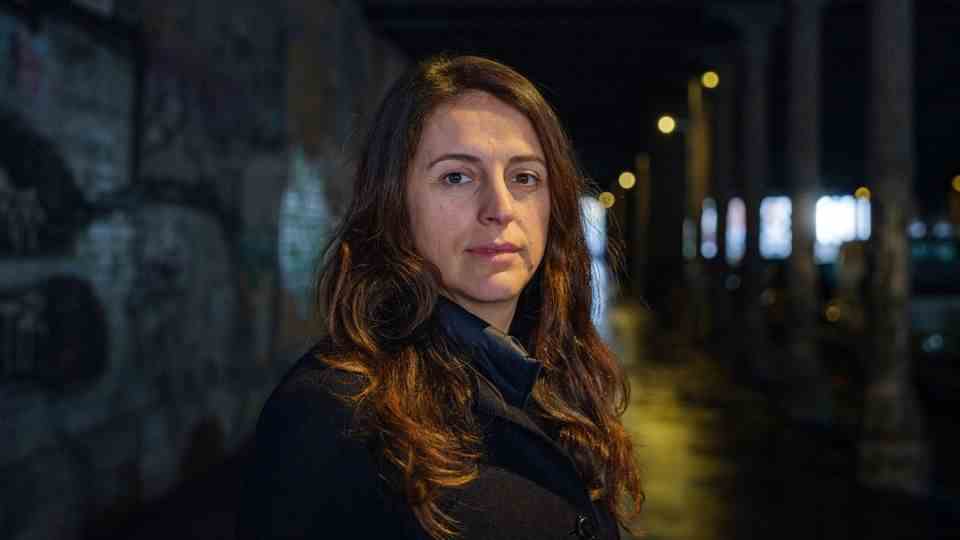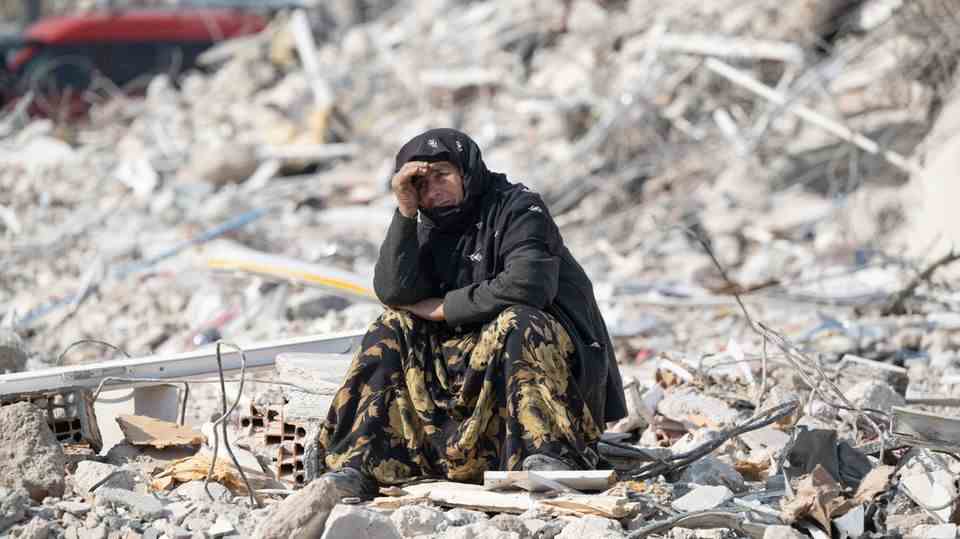Elections in Turkey
Anti-Erdogan opposition agrees on candidate – but for an important ally he is no better than “malaria”
The Turkish opposition is going to the May 14 election with Kemal Kilicdaroglu, leader of the main opposition party CHP
© Bradley Secker/DPA
After a long struggle, the Turkish opposition has agreed on a common candidate who will challenge President Erdogan in the May elections. Spicy: A key ally compares him to a contagious disease.
Officially, the elections in Turkey are not scheduled for May 14th. But in the past few days it seemed as if the opposition wanted to take itself out of the race. The reason for this is a spectacular back and forth in the election of a suitable candidate from the ranks of the opposition six-party alliance, to which a large part of Erdogan’s opponents have joined.
The so-called “table of six” was given a good chance of ousting Turkish President Recep Tayyip Erdogan and his Islamic conservative AKP from power after more than 20 years. For months, the front seemed united, including the largest opposition party, the CHP, and the national conservative Iyi party. Last Thursday, agreement was finally reached on a joint top candidate whose name was to be announced today. Political observers agreed that it would come down to CHP leader Kemal Kilicdaroglu.
Then on Friday the bang came: Iyi leader Meral Aksener declared that her party would not support Kilicdaroglu’s candidacy. Instead, she brought up the names of two of Kilicdaroglu’s party colleagues: the popular Istanbul mayor, Ekrem Imamoglu, and the mayor of Ankara, Mansur Yavas. She gave both of them better chances of winning than Kilicdaroglu, who was characterized as less than charismatic. Literally, Aksener called the decision between Erdogan and Kilicdaroglu a choice “between death and malaria”.
President Erdogan rubs his hands
The excitement was tremendous. Not only that Aksener had called for a putsch in another party. Much greater was the disappointment that the Turkish opposition apparently missed another opportunity to actually challenge the unpopular Erdogan, who rules like a sun king, with a united stance. No wonder the incumbent could hardly believe his luck. “They came, they spoke, they scattered,” Erdogan commented maliciously on the rift between his competitors.
But on Monday afternoon, the world in Turkey looked different again. When the remaining five parties met, as announced, to talk about the final announcement of the opposition candidate, Iyi leader Meral Aksener was suddenly there again and the Alliance of Six was reunited. According to her, a compromise was reached: Kilicdaroglu should be nominated as a candidate as planned, and the two popular mayors would be appointed vice-presidents if they won the election.
Earthquake in Turkey
After three days, the chances of survival drop drastically – these “miracles” happened anyway
In the evening, the confirmation actually came: CHP chairman Kemal Kilicdaroglu is running as the official Erdogan challenger of the six-party alliance in the presidential election on May 14.
It remains difficult to assess how the little confidence-inspiring hic-hack of the past few days could affect the opposition’s electoral chances. In any case, the opposition’s image of a united anti-Erdogan front has clearly cracked with Aksener’s will-o’-the-wisps. The candidate Kilicdaroglu is not necessarily a man-catcher either. He has been at the head of the opposition for almost 13 years, but under his leadership his party has yet to win an election against Erdogan.
Erdogan’s popularity in Turkey is crumbling
On the other hand, President Erdogan seems battered. Its popularity has been crumbling – especially since the devastating earthquake a month ago that killed more than 45,000 people in Turkey. Those affected blame Erdogan’s government for the many deaths because it had neglected to make the buildings earthquake-proof for years and apparently tolerated botched construction for years. Erdogan himself remained largely invisible in the first few days after the quake.
And then there is Turkey’s disastrous economic situation, particularly high inflation of 50 percent, which threatens to eat away at the newly gained wealth of traditional AKP supporters.
Several surveys still show Erdogan’s AKP, with values of around 30 percent, as the strongest party, which, as usual, forms an alliance with the ultra-nationalist MHP (“People’s Alliance”). But the bloc is not enough for a common majority capable of governing. The opposition “six table” is on an equal footing and is even ahead in some institutes.
The pro-Kurdish HDP, which has been criminalized by Erdogan’s government for years and is considered by many to be the political arm of the PKK, is also likely to play a decisive role. Its leader Selahattin Demirtas is in prison. She had originally announced that she would nominate her own candidate for the presidential election. However, this could now be done without after the announcement of Kilicdaroglu’s candidacy.
Which is important insofar as the election of the president is carried out in the same way as in France, for example. If no candidate manages to win an absolute majority in the first round on May 14, there will be a runoff 14 days later between the two best-placed candidates.
In all likelihood, that would be Erdogan and Kilicdaroglu.
Sources: Southgerman newspaper, Handelsblatt, The worldwith DPA




